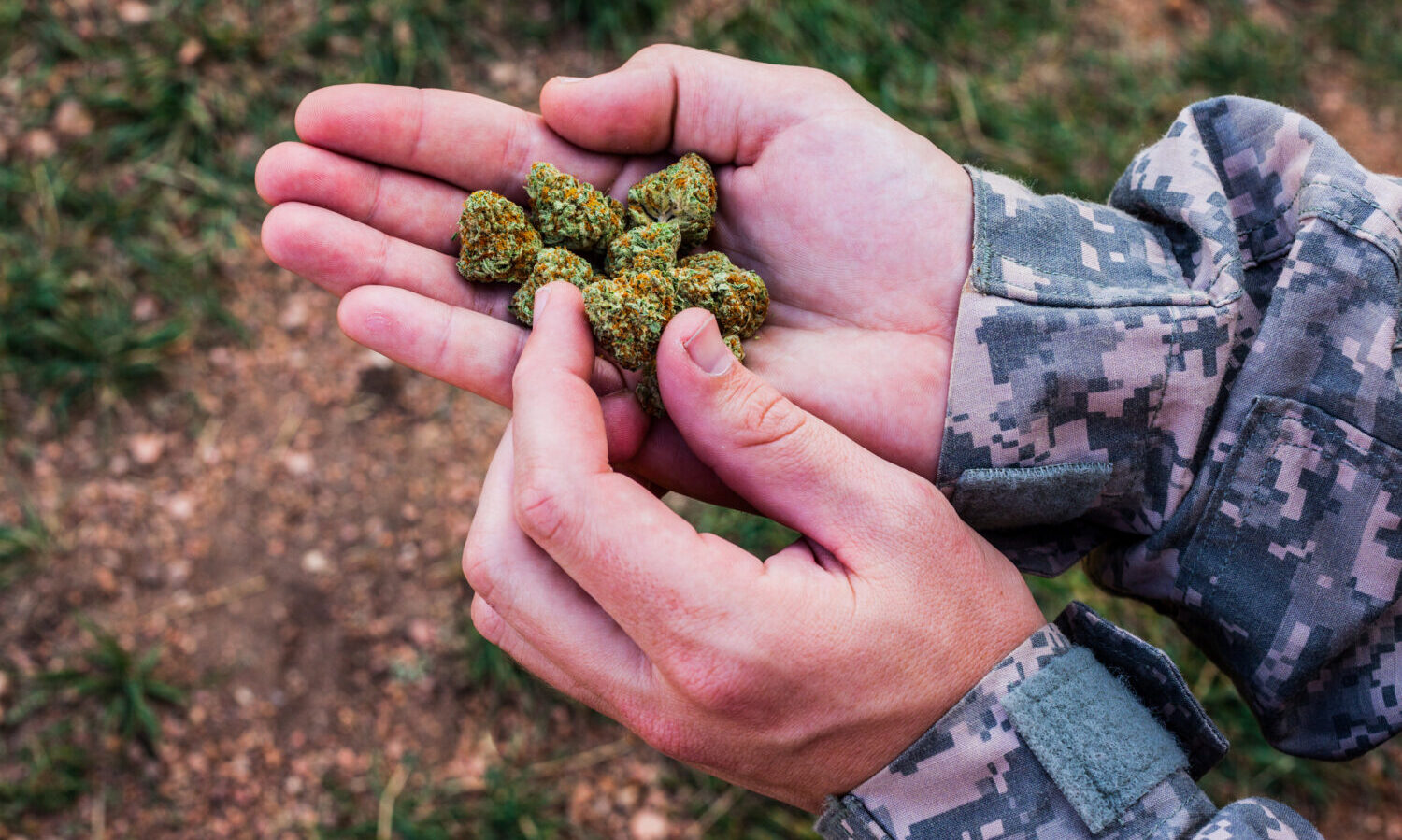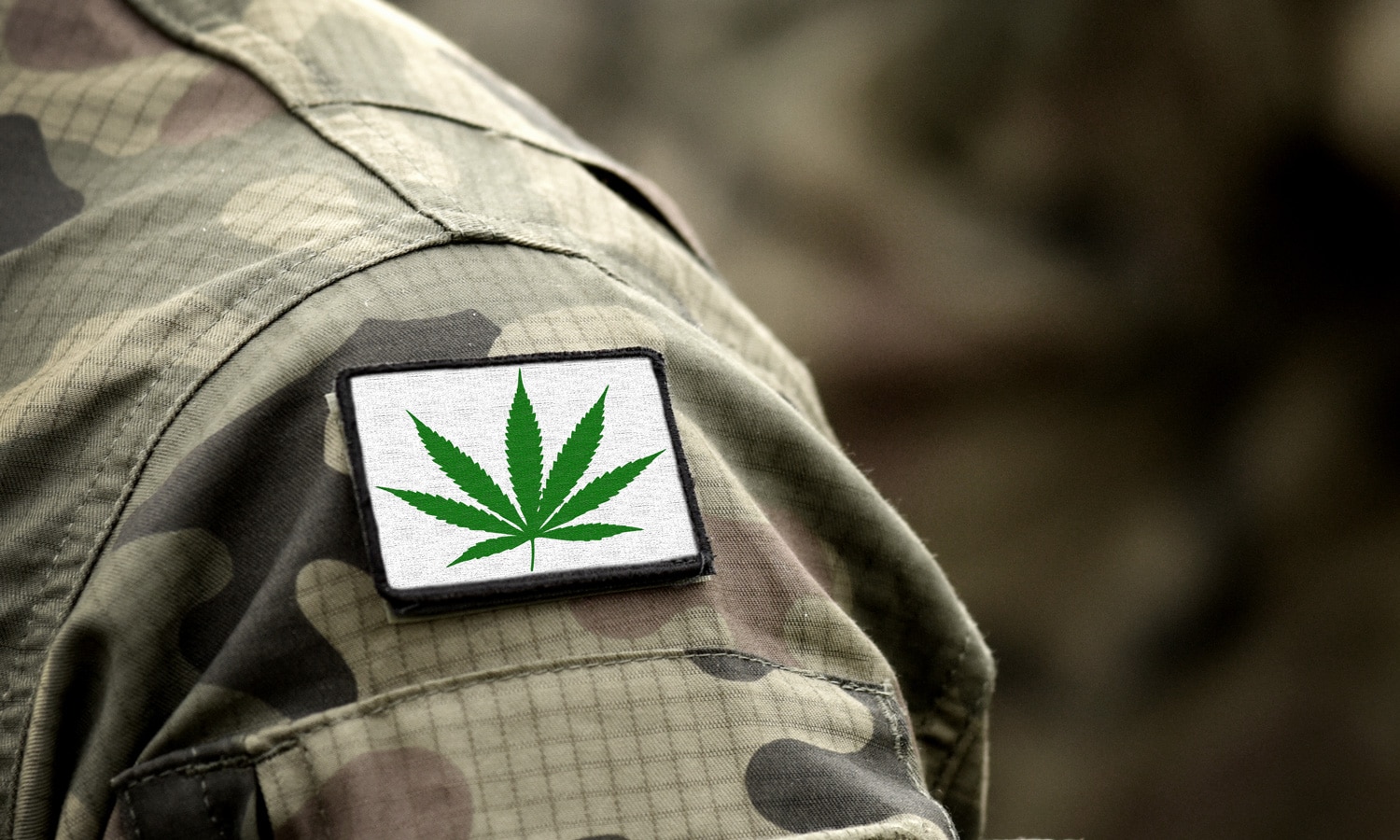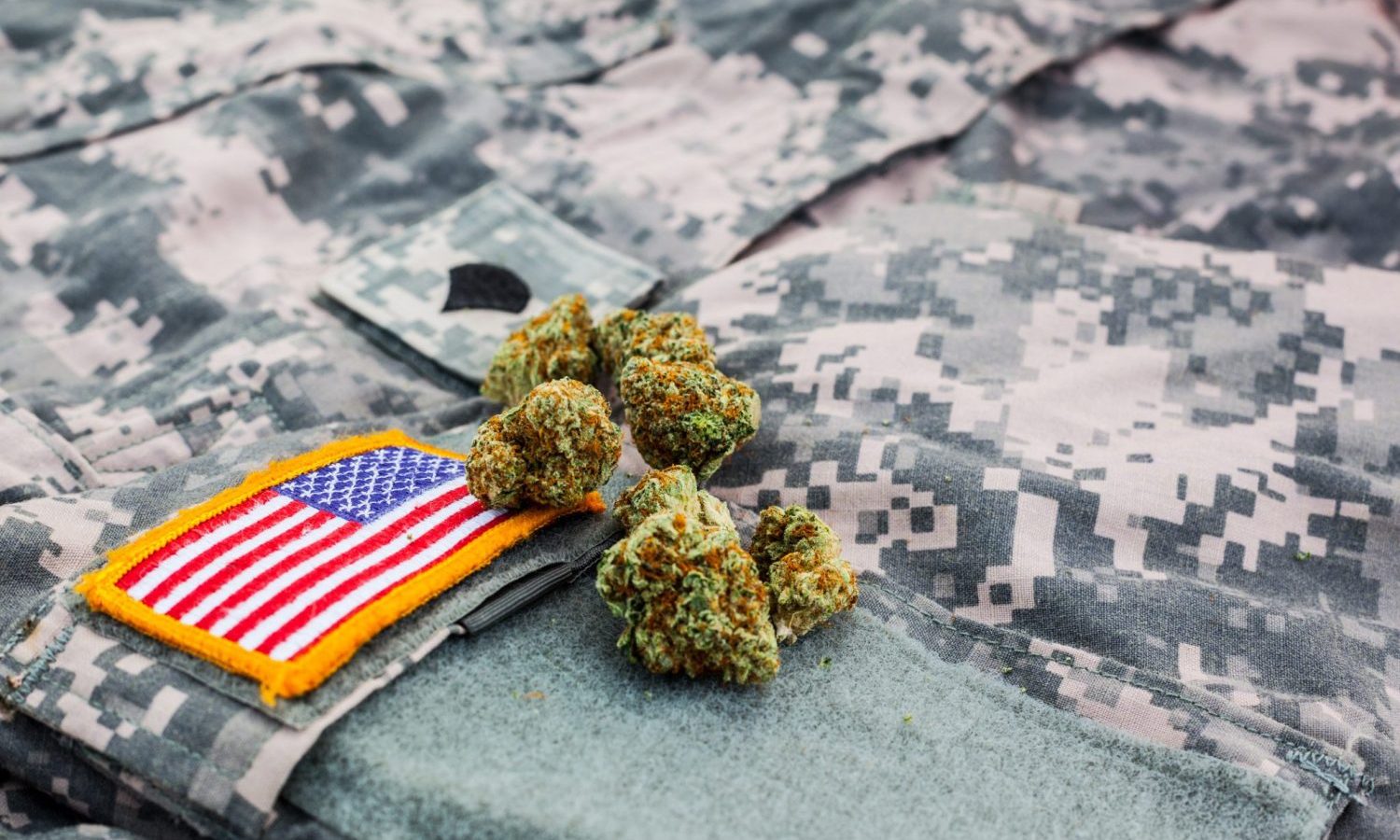While it is true that the President has autonomous power to change some punishments under the Manual for Courts-Martial, significant reform to the Uniform Code of Military Justice must be made by Congress.
By
President Biden announced a historic move last week: pardoning all prior federal offenses of simple cannabis possession. The action is estimated to benefit some 6,500 Americans, while some 40,000 people who were convicted on a state level remain unaffected unless all state governors listen to Biden’s suggestion and do the same.
What about the military?
It turns out that Biden’s cannabis pardons do not apply to members of the U.S. military, a White House official told Military.com.

A representative of the Biden Administration confirmed to the outlet that the President’s pardon “does not extend to UCMJ offenses,” referring to the Uniform Code of Military Justice — the federal body of laws enacted by Congress that applies to military service members.
While it is true that the President has autonomous power to change some punishments under the Manual for Courts-Martial, significant reform to the Uniform Code of Military Justice must be made by Congress.
According to the Manual for Courts-Martial, a cannabis possession charge can lead to a dishonorable discharge, forfeiture of pay and a two-year maximum punishment, although it is commonly much less in real life.
“It looks like there are many steps that the lawmakers need to do before we can even begin to process whatever comes,” Pentagon spokesman Maj. Charlie Dietz said.
RELATED: Senators Introduce Amendments For Legalizing Medical Cannabis For Veterans
On the bright side, even though the President’s pardons won’t help active military service members or retirees who have been charged under the UCMJ, it would extend the number of applicants who otherwise wouldn’t be able to qualify because of their record. As many as 77% of young Americans are unable to qualify for military service, with drug and alcohol abuse accounting for 8%, according to a Pentagon study.
Eric Carpenter, an associate professor of law at Florida International University with a specialty in military justice confirmed that the UCMJ is the first authority for service members, before federal or state laws.

Professor Carpenter further explained that Biden’s action hints to federal prosecutors nationwide that simple cannabis possession charges are not worth pursuing, which could also help raise the number of people eligible to apply for military service.
“This will open up a lot of people to come into the services,” Carpenter told Military.com. “But once they’re in, the UCMJ will apply to them.”
It is important to note that, according to recent surveys, more Americans now smoke pot than cigarettes and as many as 50% of all recruits come from a state where cannabis is now legal at least for medical purposes.
Military Members Aren’t The Only Ones That Won’t Benefit From Biden’s Pardon
Immigration rights advocates were especially angry because “this pardon does not apply to individuals who were non-citizens not lawfully present in the United States at the time of their offense,” reported Marijuana Moment.
Rep. Alexandria Ocasio-Cortez (D-NY) was one of the first politicians to publicly raise awareness of this issue.
This is truly great news.
And for people to truly be freed from having their lives haunted by unjust marijuana convictions, we must work to *expunge* records beyond pardoning.
Between that and descheduling cannabis, we can make huge steps forward for so many communities. https://t.co/cJVAvyOM0n
— Alexandria Ocasio-Cortez (@AOC) October 7, 2022
Air Force’s Recent Policy Changes
With marijuana use being more common every year, some military branches took matters into their own hands, prior to Biden’s action, and are working on new regulations that would give a second chance to applicants who test positive for THC.
RELATED: Air Force, Space Force Will Give Second Chance To Applicants Who Test Positive For THC
Recruits who otherwise qualify to serve but tested positive for THC at Military Entrance Processing Stations (MEPS) might be granted a waiver, Maj. Gen. Ed Thomas, commander of the Air Force Recruiting Service told Air Force Times in an interview published in September.
He emphasized that applicants who test positive for THC while at MEPS are “permanently” prohibited from entering the Air Force or Space Force. However, with more states legalizing marijuana, the number of THC-positive applicants is rising.
“We have to be realistic today,” Thomas continued. “We need to exercise common sense.”
This article originally appeared on Benzinga and has been reposted with permission.


